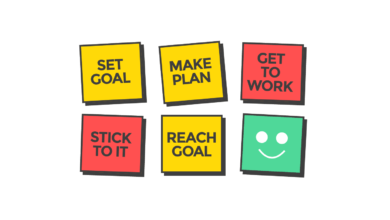Master the Art of Effective Life Coaching to Achieve Personal Success

Life coaching is a powerful process that helps individuals make positive changes in their personal and professional lives. Effective life coaching can inspire clients to achieve their goals, overcome obstacles, and develop the skills and mindset necessary for long-term success. However, becoming an effective life coach requires more than just knowledge—it requires a deep understanding of human behavior, empathy, and strong communication skills.
In this article, we will explore the key principles and strategies behind effective life coaching and how these techniques can help you guide clients toward reaching their full potential.
Understand the Role of a Life Coach
A life coach is not just someone who gives advice; they act as a guide, helping clients navigate through challenges, set realistic goals, and build strategies to achieve their dreams. The role of a life coach involves actively listening, asking thought-provoking questions, and providing encouragement to foster self-discovery and growth.
Effective life coaching is built on a foundation of trust and collaboration. As a coach, you need to create a safe, non-judgmental space where your clients can explore their deepest desires and fears.
- Ask the right questions: Open-ended questions are powerful tools that help clients discover their own solutions. Instead of offering answers, ask questions that encourage critical thinking and self-reflection.
- Active listening: A great coach listens carefully to what the client says—and doesn’t say. Pay attention to body language and tone of voice to gain a deeper understanding of the client’s emotional state.
Life coaching tip: Your role is to guide clients toward their own insights, not to provide them with all the answers.
Establish Clear and Achievable Goals
Goal setting is a fundamental part of effective life coaching. Without clear goals, clients may feel directionless or struggle to measure their progress. By helping clients set specific, measurable, achievable, relevant, and time-bound (SMART) goals, you give them the tools they need to stay focused and motivated.
- Break down big goals: Often, clients come with large, overwhelming goals. Help them break down these goals into smaller, more manageable tasks that they can tackle step by step.
- Create a timeline: Work with your client to establish a realistic timeline for achieving their goals. A timeline creates urgency and provides a sense of structure.
Life coaching tip: Use the SMART goal framework to help your clients set realistic goals and track their progress along the way.
Foster a Growth Mindset
One of the most important aspects of effective life coaching is helping clients cultivate a growth mindset. A growth mindset is the belief that abilities and intelligence can be developed with effort, perseverance, and learning from mistakes.
- Reframe challenges as opportunities: Help clients see challenges as opportunities for growth rather than obstacles. Encourage them to embrace failure as a learning experience.
- Praise effort over outcomes: Instead of praising your clients for their achievements alone, recognize and applaud their effort, commitment, and progress.
Life coaching tip: Foster a growth mindset by helping your clients view failures as valuable learning experiences, and celebrate every effort made toward improvement.
Develop Strong Communication Skills
Clear and effective communication is essential for any life coach. Whether you are conducting one-on-one coaching sessions or group coaching, how you communicate with clients can greatly impact their success.
- Empathy and understanding: Show genuine empathy and understanding. Validate your client’s emotions, and help them feel heard and supported.
- Provide constructive feedback: Offer feedback in a way that is respectful and encouraging. Help clients understand what they can do better without discouraging them.
- Use positive language: Language Effective life coaching is powerful. Be mindful of the words you use, and focus on positive and solution-oriented language.
Life coaching tip: Use your communication skills to build a supportive and positive environment that encourages growth and progress.
Also Read: Effective Strategies for Building Self-Confidence and Achieving Success
.jpg)
Build Accountability
Accountability is one of the key elements of effective life coaching. Clients are more likely to achieve their goals when they know they will be held accountable for their actions. This accountability can come in the form of regular check-ins, tracking progress, and establishing clear expectations.
- Set regular follow-up sessions: Schedule follow-up sessions to check on your client’s progress and keep them on track.
- Create an action plan: After each session, work with your client to create an action plan for the upcoming week. This ensures they have clear Effective life coaching steps to take and encourages responsibility for their growth.
Life coaching tip: Set regular, accountable touchpoints to help clients stay focused and committed to their goals.
Help Clients Build Confidence and Self-Belief
A large part of life coaching is helping clients overcome self-doubt and build confidence. Many people struggle with imposter syndrome or a lack of belief in their abilities. As a coach, it’s your job to help them build their self-esteem and foster belief in their potential.
- Identify strengths: Help your clients recognize their strengths and use these as a foundation for building their self-confidence.
- Encourage positive self-talk: Teach your Effective life coaching clients how to replace negative self-talk with positive affirmations. Help them recognize their worth and abilities.
Life coaching tip: Boost your clients’ self-belief by focusing on their strengths and celebrating their successes, no matter how small.
Be Flexible and Adaptable
No two clients are the same, and life coaching should never be one-size-fits-all. Effective life coaching requires adaptability. Different clients may respond to different coaching methods, and sometimes unexpected circumstances may arise that require a change in approach.
- Tailor your approach: Understand Effective life coaching that each client has unique needs, values, and goals. Customize your coaching style to suit their preferences and personality.
- Be open to change: Life coaching is not a rigid process. Be open to modifying your methods based on the client’s progress or struggles. Flexibility shows that you are invested in your client’s success.
Life coaching tip: Adapt your coaching techniques to meet the evolving needs of your clients for the best possible results.
Conclusion: Become an Effective Life Coach and Help Others Achieve Success
Effective life coaching is about more than just giving advice—it’s about building a supportive relationship, helping clients discover their own answers, and guiding them to take actionable steps toward their goals. By focusing on clear communication, goal setting, accountability, and confidence-building, you can help your clients unlock their full potential and achieve lasting success.
As a life coach, your role is to inspire, support, and challenge your clients to grow in meaningful ways. Implement these strategies and watch your coaching practice thrive as you make a positive impact on the lives of others.






One Comment